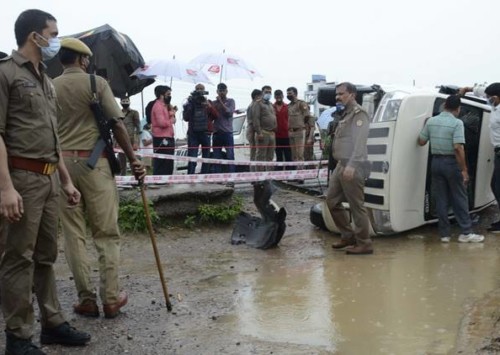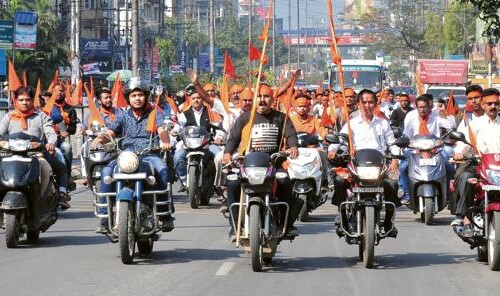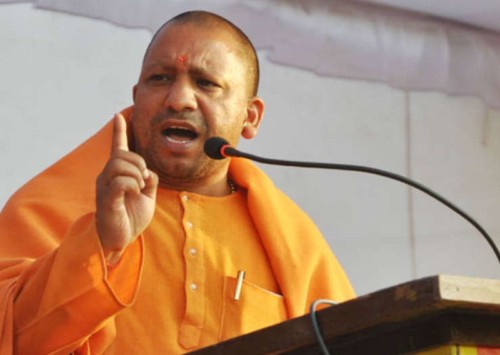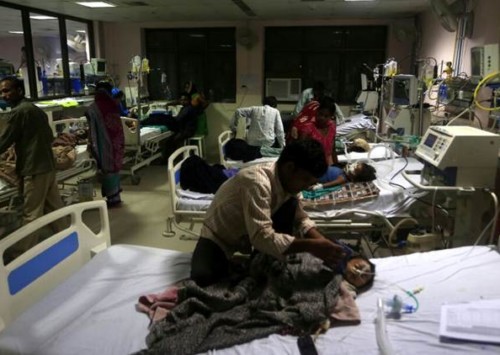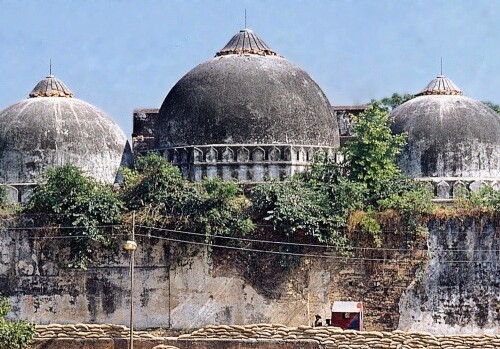Human rights groups uneasy over proposed police force in Uttar Pradesh
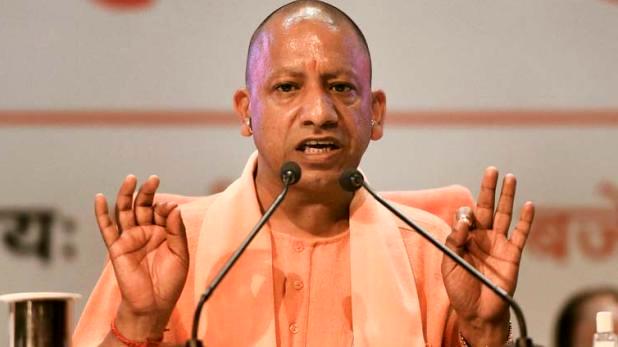
Chief Minister of Uttar Pradesh Yogi Adityanath has frequently been criticised by human rights activists for flagrant rights violations by police under his regime
Human rights groups say they are considering challenging in courts of law the creation of Uttar Pradesh Special Security Force (UPSSF) being set up by the Uttar Pradesh government as soon as its contours are defined and the rules governing the special force, which seems to have sweeping powers of search and arrest, are framed.
On June 26, chief minister Yogi Adityanath had announced the creation of UPSSF, with powers similar to the CISF (Central Industrial Security Force), that can search and arrest without a warrant. The UPSSF would be tasked to protect courts, airports, administrative buildings, metros, banks, monuments as well as industrial and residential areas.
After the announcement, in a series of late-night posts, UP government’s Twitter handle quoted additional chief secretary (Home) Awanish Awasthi as saying that eight battalions of the UPSSF will be constituted initially at a cost of INR 17.5 billion. The initial infrastructure for the force would come from the PAC (Provincial Armed Constabulary), a special unit of the UP Police. The UPSSF ‘will be a dream project’ of Adityanath, Awasthi pointed out.
‘‘Any member of the force can, without the prior permission of any magistrate and without any warrant, arrest any person,’’ one of the tweets read, adding that ‘‘separate rules for this section would be framed.’’
Though the final rules are not yet out and are expected in about a fortnight, human rights groups are watching the development very closely and are worried that this special force would make Adityanath’s government even less accountable for its actions. They also question the need for any new force.
They also fear that the force, with its untrammelled powers, could be used to further oppress and target not just the Muslims in the state but also Dalit activists. ‘‘There is absolutely no other objective behind it except suppressing dissent. And Yogi Adityanath has a completely anti-Muslim agenda. Even the RSS (Rashtriya Swayamsevak Sangh, the parent organisation of the ruling Bharatiya Janata Party) follows some ideologies but Yogi does not have any ideology. He is highly intolerant of dissent. Even for a small thing, his forces have used the draconian National Security Act. Whoever challenges or criticises him, he gets them arrested. So, no, nobody needs a special force,’’ Arundhati Dhuru, National Convenor of National Alliance of Peoples’ Movements (NAPM), an umbrella organisation of human rights movements from across the country, tells Media India Group.
Critics say that Adityanath has been trying to silence the voice of dissent since the day he took charge. From targeting anti CAA protestors to overlooking incidents where minorities were killed by cow vigilantes, the UP government under him has left no stone unturned to silence the voice of the minorities, they say.
One of the favourite tools to silence dissent and quell opposition used by the UP government is the draconian National Security Act, which was promulgated to tackle terror and which makes even getting a bail very difficult. Also, police can detain persons for up to a year without any charges under this Act. In the past three years, it has been used in equal proportion against dissenters as well as Muslims. Just in 2017, the police arrested and charged 160 Muslims with offences under the NSA. Such widespread apparent misuse has not gone unnoticed. “For the first time in Indian history, this law is being misused so much. This is part of the BJP policy to rule through terror. They are using the police as their power arm to overawe the Dalits and minorities,” says S R Darapuri, a retired police officer.
As if to reinforce the perception that the laws were being misused by the police to target Muslims, Awanish Kumar Awasthi said that this year, till August 19, 2020, the UP Police had invoked the NSA against 139 people in the state, 76 of them for cow slaughter. As on August 31, the Bareilly police zone alone accounted for 44 of the cases. In contrast, the police invoked the NSA only against six persons for crimes against women and children, 37 for heinous crimes and 20 for other offences. The Act was also used against 13 persons in relation to the anti-Citizenship (Amendment) Act protests that were held earlier this year.
Justifying the liberal application of the NSA, Awasthi has said, “Uttar Pradesh chief minister Yogi Adityanath has directed that the NSA be slapped in case of crimes which may affect public order so that there is a feeling of fear among criminals and a feeling of safety among the public.” NSA charges apart, this year, till August 26, 1,716 cases had been registered under the Uttar Pradesh Prevention of Cow Slaughter Act and over 4,000 people arrested. A closure report has been filed in 32 cases after the police failed to gather evidence against the accused. Besides, the police invoked the UP Gangsters’ Act against 2,384 and Goonda Act against 1,742 in the state on the same charges.
Even though UP government officials have said that the UPSSF would essentially be like the CISF and similar special forces in Maharashtra and Odisha, it is the track record of the UP police as well as Yogi Adityanath that is worrying the activists. Ever since Adityanath became the chief minister of UP after a thumping electoral win for the BJP in 2017, the UP police has gone on an encounter spree shooting dead 119 alleged criminals in over 5,200 encounters. Despite objections from the Opposition parties as well as human rights groups, Adityanath has not only given a free hand to the police to kill, but also egged them on publicly.
The activists say that not only has the UP police been trigger happy, but more worryingly they have been openly communal and anti-Muslim on numerous occasions, notably during the anti-CAA protests that began last year. Dozens of videos have gone viral on social media showing UP police officials not only standing by and watching rioters target and burn Muslim-owned properties and vehicles, but their own personnel were also caught on cameras smashing cars, burning and looting Muslim-owned businesses. A report on December 23 had said that 14 of the 17 deaths in Uttar Pradesh during these protests were due to firearm injuries, contrary to police claims that not a single bullet had been fired. In addition, the police slapped sedition charges on 135 people in Azamgarh district alone for taking part in anti-CAA protest.
In an unprecedented act, the UP government also went a step ahead and publicly named and shamed those who participated in the December 2019 protests in Lucknow against the Citizenship Amendment Act (CAA) by putting up hoardings with the photos and home addresses of those it blames for the violence seen at strategic traffic points in the capital city. They were taken down only when the courts ordered the government to remove them. In December 2019, in complete disregard to the orders passed by the Supreme Court and the Allahabad High Court, Yogi Adityanath government passed Public Properties Ordinance- 2020 and demanded anti-CAA protesters pay compensation for property damage. The notices threatened to seize property of the protesters if they failed to do so.
The UP police had also targeted the historical Aligarh Muslim University, entered the campus without permission and began beating and arresting students who had organised a protest against CAA. The police also entered the university hostels and arrested students from there, brutally beating them. The policemen were also alleged to have shouted communal slogans like Jai Shri Ram and used stun grenades in the campus. Over 70 students were injured in the police attack. Subsequently, the Allahabad High Court ordered a thorough investigation and action against the guilty police personnel, while the National Human Rights Commission ordered that police also pay compensation to the students.
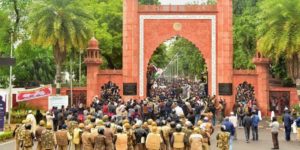
While the track record of UP police has long been questionable, under current regime it has touched new lows in terms of following the law and respecting human rights
The UP police has also been accused by human rights activists of abuse of law and their power to interfere in personal lives of the people, notably in inter-religious couples. One of their favourite targets is the so-called ‘Love Jihad’, a term coined by the extreme right wing to portray an imaginary pan-Islamic conspiracy to convert unsuspecting Hindu women to Islam by ‘trapping’ them in relationships and marriages. On August 28, Adityanath directed the home department to prepare an action plan “to bring an end to love jihad.” According to Mrityunjay Kumar, media adviser to Adityanath, due to the increasing cases of ‘love jihad’ reported from different parts of the state, “The chief minister instructed senior home department officials to prepare a plan to stop such incidents.”
Critics say due to the concerns over Yogi’s totalitarian rule and his obtuse perceptions, they fear the worst from the UPSSF. They fear that not only will the state machinery misuse the special police, but it could eventually be used by private establishments or just about anyone.
Because of wide and fairly vague nature of powers proposed to be given to the UPSSF, there are also serious concerns that it could be used as a private force by businesses or elite or even political groups. ‘‘There are reportedly provisions that it could be deployed to guard private property and businesses. If so, it could be used by institutions like hospitals as there have been many incidents of clashes between hospital staff and relatives of patients admitted there. That could lead to complications,’’ a senior journalist based in Lucknow tells Media India Group.
‘‘In terms of public protest there is no opposition in Uttar Pradesh. We will move to the court. But Yogi is one sort of a person who will manage with the help of an Ordinance for some time. He does not believe in democracy. The opposition parties may stage protests against the order, but they are very weak. Things will heat up only next year as elections are due in 2022. So for now, our only option is to move the courts,’’ says Dhuru.
But being a human rights activist is also not very easy in UP under Yogi, she says. ‘‘Human rights organisations in UP are not as strong as they are in Maharashtra. One of the things that Yogi does is he uses his police force and puts us under house arrest every time we have to go to a protest or anything. It’s not official and there are no charges. They will only release us once the whole thing has dispersed,’’ says Dhuru.
For now, the activists are waiting for the government to publish the final rules governing the UPSSF. Only then the battle will begin – on the streets and in the courtrooms.

